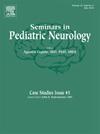脑型疟疾
IF 2.1
4区 医学
Q2 CLINICAL NEUROLOGY
引用次数: 0
摘要
脑型疟疾是恶性疟原虫感染的最致命形式。该病在临床上被定义为疟疾寄生虫病患者出现不明原因的昏迷。患有脑疟疾的儿童中有六分之一死亡,许多幸存者留下了神经、认知或行为后遗症。急性发作是常见的,在指数疾病期间增加的数量与更大的不良后果的可能性相关。脑型疟疾儿童的最佳治疗途径已经标准化,但迄今为止,寻找降低脑型疟疾死亡率或发病率的辅助疗法仍然难以实现。出院后,幸存者在诊断和管理教育挑战、行为异常和癫痫方面仍然存在护理差距,特别是在疟疾发病率最高的农村地区。在过去的十年里,科学已经阐明了很多关于脑型疟疾发病机制的知识。使用磁共振成像、脑电图和经颅多普勒的观察性研究都提供了从蚊子传播的最初感染到死亡的途径。每一种高技术模式的发现也与脑型疟疾患儿的预后有关。我们回顾了流行病学、临床特征、诊断注意事项、最佳临床护理途径、神经系统后遗症以及脑疟疾及其并发症管理中的现有护理差距。本文章由计算机程序翻译,如有差异,请以英文原文为准。
Cerebral malaria
Cerebral malaria is the most lethal form of Plasmodium falciparum infection. The disease is defined clinically as an otherwise unexplained coma in someone with malaria parasitemia. One in 6 children with cerebral malaria dies and many survivors are left with neurologic, cognitive, or behavioral sequelae. Acute seizures are common and increasing numbers of them during the index illness are associated with a greater likelihood of adverse outcomes. Optimal treatment pathways for children with cerebral malaria have been standardized but the search for an adjunctive therapy that decreases cerebral malaria mortality or morbidity has, so far, remained elusive. After hospital discharge, care gaps for survivors continue in the diagnosis and management of educational challenges, behavioral abnormalities, and epilepsy, especially in the rural settings where malaria incidence is highest. In the past decade, science has elucidated much about cerebral malaria pathogenesis. Observational studies using magnetic resonance imaging, electroencephalogram, and transcranial doppler have all provided insight on the pathway from the initial infection transmitted by a mosquito, to death. Findings from each of these high technology modalities are also associated with outcomes in children with cerebral malaria. We review the epidemiology, clinical features, diagnostic considerations, optimal clinical care pathways, neurological sequalae, and existing care gaps in the management of cerebral malaria and its complications.
求助全文
通过发布文献求助,成功后即可免费获取论文全文。
去求助
来源期刊

Seminars in Pediatric Neurology
CLINICAL NEUROLOGY-PEDIATRICS
CiteScore
4.80
自引率
0.00%
发文量
38
审稿时长
84 days
期刊介绍:
Seminars in Pediatric Neurology is a topical journal that focuses on subjects of current importance in the field of pediatric neurology. The journal is devoted to making the status of such topics and the results of new investigations readily available to the practicing physician. Seminars in Pediatric Neurology is of special interest to pediatric neurologists, pediatric neuropathologists, behavioral pediatricians, and neurologists who treat all ages.
 求助内容:
求助内容: 应助结果提醒方式:
应助结果提醒方式:


